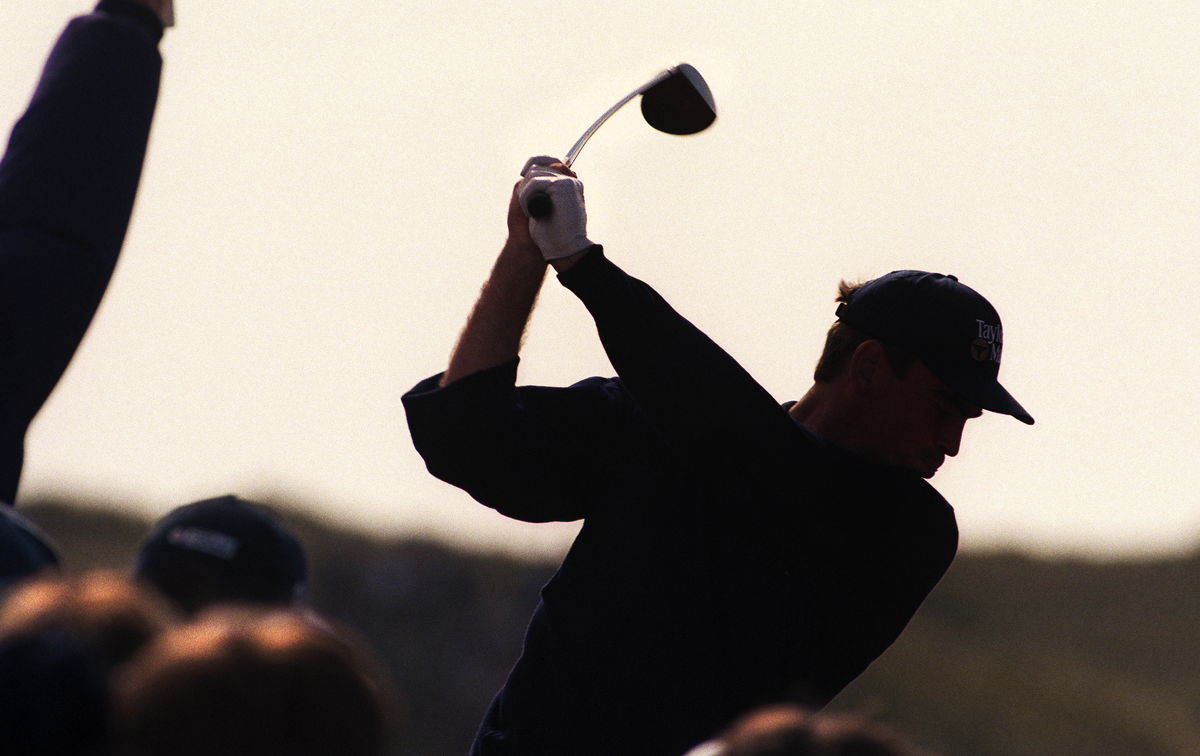
Getty
Silhouetted golfer on the tee during the 127th British Open Golf at Royal Birkdale GC in Southport 16th-19th July 1998. (Photo by David Ashdown/Getty Images)

Getty
Silhouetted golfer on the tee during the 127th British Open Golf at Royal Birkdale GC in Southport 16th-19th July 1998. (Photo by David Ashdown/Getty Images)
The Ryder Cup record books tell a simple story. The biggest comeback ever? Just four points. It happened twice—at Brookline in 1999 and Medinah in 2012. Both times felt impossible. Both times became legend.
Watch What’s Trending Now!
Fast forward to Bethpage Black in September 2025. Team USA faced something even more daunting. A seven-point deficit heading into Sunday singles. The math was brutal. No team had ever come back from that far behind.
Yet one American tells this story with surprising fondness. And people look at him funny for it. Kevin Kisner recently appeared on SiriusXM’s “Gravy & The Sleeze” podcast with hosts Colt Knost and Drew Stoltz. The 41-year-old assistant captain opened up about his Ryder Cup experience at Bethpage Black. His take? It was incredible. Even in defeat.
ADVERTISEMENT
View this post on Instagram
“I told a bunch of people that since post Ryder Cup and people still look at me funny when I say that,” Kisner admitted. He wasn’t wrong to expect skepticism. After all, Europe crushed the Americans 15-13. The final score looked respectable. The first two days told a different story.
Team USA got dominated. Keegan Bradley’s squad fell behind 5.5-2.5 on Friday. Saturday was worse. Europe extended its lead to 11.5-4.5. Two days of getting “our butts kicked,” as Kisner put it. All that preparation. All those strategy sessions. None of it worked.
ADVERTISEMENT
Then Viktor Hovland withdrew on Sunday morning due to a neck injury. Under the envelope agreement, his match with Harris English counted as a half. The score became 12-5 before a single Sunday shot. The Americans needed 9.5 points from 12 games just to tie. History said it couldn’t happen.
“You don’t have a ton of hope when you’re down by seven in the Ryder Cup,” Kisner explained. “There’s just biggest comeback of all time. Four or five, I think.” He was right. Four points were the record.
ADVERTISEMENT
But then something shifted. Kisner got stationed on the 12th green at Bethpage Black. The par-4, 496-yard hole became his command center for about an hour. He watched every group come through. He listened to the radio for updates. He saw the impossible start to unfold.
“The first thing I see is, you know, the first two European guys are winning the matches through four or five holes, and I’m like, man, this is tough,” Kisner recalled. Then everything changed. Cameron Young made a clutch birdie putt. Justin Thomas followed with his own heroics. Bryson DeChambeau clawed back from down multiple holes.
The tide turned. The crowd turned with it. Suddenly, “we started making putts, and we’re winning all the crucial points.” Kisner heard about Cam Young’s birdie on the radio before the scoreboard updated. He pointed at the board and raised his hands. Moments later, it posted. The crowd went absolutely nuts.
ADVERTISEMENT
“It’s like on the radio suddenly, like, oh, my gosh, we got a chance to actually do this, boys,” Kisner said. The energy became electric. The crowd believed. The Americans believed. For twenty magical minutes, the impossible comeback felt within reach.
Top Stories
‘Unreal’: Amanda Balionis Left Stunned by Scottie Scheffler at The American Express
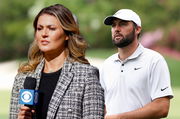
Patrick Reed’s Bombshell Claim About LIV Golf Contract Explains His Eagerness to Rejoin PGA Tour
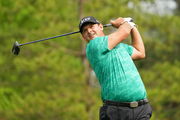
Prayers Pour in for PGA Tour Champions Star as Cancer Diagnosis Comes to Light
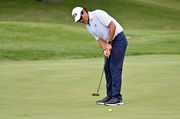
Multiple PGA Tour Pros Withdraw From Farmers Insurance Open Days Before It Begins
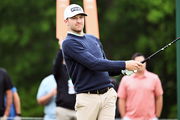
Scottie Scheffler’s Adorable Moment With Son Bennett and Wife Meredith Leaves Fans in Awe
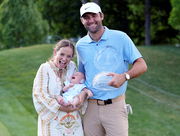
Kevin Kisner’s assistant captain role: watching the drama from the sidelines
This wasn’t Kisner’s first rodeo with team golf. The four-time PGA Tour winner played in two Presidents Cups (2017, 2022). His match play record at WGC events was exceptional, standing at 21-6-1 through 2022. Yet he never made a Ryder Cup team as a player. Despite being one of the best match play competitors on tour.
ADVERTISEMENT
So when Bradley named him assistant captain in January 2025, it carried significant meaning. Kisner was one of five vice captains alongside Jim Furyk, Webb Simpson, Brandt Snedeker, and Gary Woodland. Their job? Watch matches closely. Monitor body language. Provide real-time information. Offer strategic advice. Manage team morale through radios and direct conversations.
Assistant captains typically speak sparingly during rounds—maybe three or four key messages. But Sunday at Bethpage was different. The comeback attempt demanded constant communication. Updates flew between captains and players. The 12th green became Kisner’s vantage point for orchestrating hope.
Team USA won six matches outright that Sunday. They halved four more. They earned 8.5 points—tying the record for most points in a singles session. Only Patrick Cantlay lost his match outright, falling to Ludvig Åberg 2&1. It wasn’t enough. Shane Lowry’s birdie on 18 secured Europe’s retention. Tyrrell Hatton’s half-point clinched outright victory.
ADVERTISEMENT
But Kisner remembers the energy. The belief. The impossible feeling is possible for those precious minutes.
“The energy was so much fun,” he reflected. “It was just a cool thing to be a part of.”
That’s why people give him funny looks. Most see a loss. Kisner noticed something else entirely.
ADVERTISEMENT
ADVERTISEMENT
ADVERTISEMENT
ADVERTISEMENT
